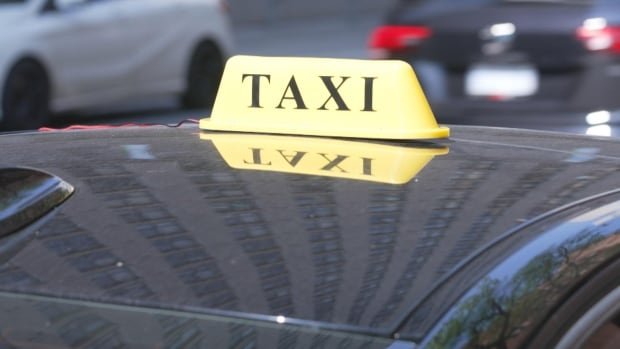After a long day at a work event in July, Kathryn Kozodi was relieved when she spotted a car with a lit-up taxi sign.
She thought it was odd when the driver told her she’d have to pay her fare with a debit card. Still, a tired Kozodi hopped in the car.
“I was like, ‘Fine, it’s kind of weird, but let’s go home,’” said Kozodi, who lives in Calgary.
Nothing else seemed off — until the next day when she discovered that almost $2,000 was missing from her bank account. On top of that, her debit card had someone else’s name on it.
Kozodi concluded that the taxi driver was a fraudster who, during the debit card transaction, recorded her PIN, stole her card and handed her back a fake.
“I started freaking out,” she said. “It’s terrifying when they have your debit card.”
It took Kozodi about two weeks to get her money back from her bank, and she’s still rattled by the experience.
“It really felt like an invasion of privacy and a violation to be a victim of this scam,” she said. “I really don’t want it to happen to anybody else.”

The taxi scam isn’t new; Toronto and Montreal have been seeing it for years. But the crime is becoming more widespread.
This summer, police in Calgary, Edmonton and at least five cities in southern Ontario, including Kingston and Ottawa, posted warnings online that they had received multiple reports of the scam.

Police and the Canadian Taxi Association say the fraudsters have a helping hand: with the click of a button, they can purchase a generic — but official looking — taxi roof sign on e-commerce sites like Amazon.
The taxi association has asked Amazon, by far Canada’s most popular online shopping site, to stop making the roof signs so easily available.
“They do have a moral responsibility to at least sell the signs to individuals that are properly licensed,” said association president Marc André Way.
However, the U.S.-based company continues to sell the product to all customers.
“These lights are legal to sell in Canada,” Amazon told CBC News in an email.
‘Eye-popping’ numbers
The taxi scam has several variations but typically ends the same way: the victim pays with a debit card, then the scammer secretly steals it and hands the victim a similar but fake card. Shortly thereafter, money disappears from the victim’s account.
Ron Hansen, deputy chief of police in Sarnia, Ont., said his department received 12 reports of the scam in July, with one victim losing $9,900.
Toronto police report that since June 2023 the department has received 919 reports of the taxi scam, totalling $1.7 million in losses.
The numbers are “eye-popping,” said Toronto police detective David Coffey.
“When they do get a victim, they are quick to go right into the bank accounts. They’re quick to empty them out.”

Jessica Chin King of Toronto said just 15 minutes after a recent cab ride, she got a suspicious activity alert from her bank. Turns out, $600 had been withdrawn from her account.
“I was like, ‘Wow, I can’t believe that just happened.’ I was in shock,” said Chin King, whose bank later reimbursed the cash.
She said she too was fooled by the taxi sign atop the car.
“I was in the car with somebody who wasn’t a taxi driver. Anything could have happened,” she said. “I was thankful that it was only my bank [account] that was compromised.”
Taxi light for $35 on Amazon
CBC News bought a taxi sign from Amazon for $35. It has a magnetic strip on the bottom, so it easily sticks to the top of a car.
To power the light, an attached wire can be run through the driver’s window and plugged into the car’s auxiliary power outlet, also known as the cigarette lighter.
The taxi association says licensed taxi drivers typically get their roof signs from speciality suppliers, and they are hardwired to the car — not powered via the cigarette lighter.
“When you see that … it’s obvious that it’s not a legitimate taxi,” said Way, the association president.

Last month, Way sent Amazon a letter on behalf of the Canadian Taxi Association, asking it to stop selling the product.
“This is not a safe, practical way to distribute the trusted ‘Taxi’ signs,” he wrote.
But Amazon told Way — and CBC News — the signs will remain on its site, because the company isn’t breaking any rules.
WATCH | Illegal weapons sold on Amazon:
Weapons that are illegal in Canada, including switchblades, stun guns and brass knuckles, have been found for sale on Amazon Marketplace until they were reported and taken down.
“It’s going to be quite difficult, I think, for anyone to stop Amazon from selling a product that is perfectly legal to sell,” said Toronto criminal lawyer, Daniel Goldbloom. “It’s true that these taxi signs can be used to commit scams, but kitchen knives can be used to commit murder — and we don’t stop retailers from selling those.”
But Way isn’t giving up hope.
He says the taxi association also plans to ask other online retailers, such as Temu and eBay, to stop selling the taxi signs and will lobby provincial governments for legislation that regulates the sale of the product.
However, Coffey said he believes the best way to fight the taxi scam is to educate people about it.
“Never, never give another person control of your debit card,” the detective said.
Victims Chin King and Kozodi also want to spread the word.
“The more people know, the less likely it is to happen again to somebody else,” Kozodi said.


Leave a Reply